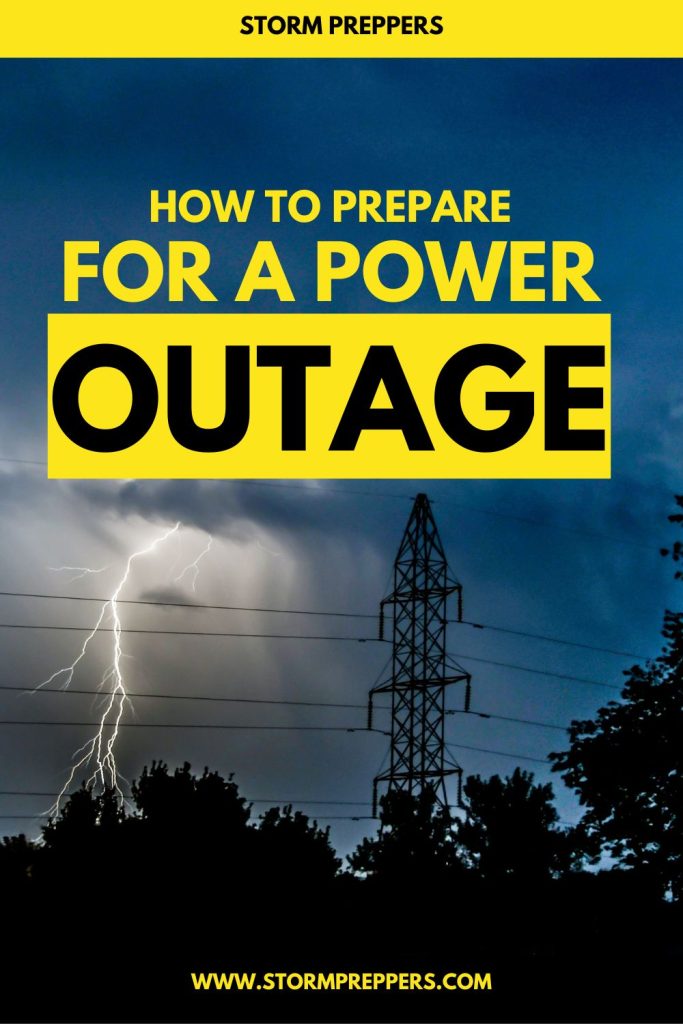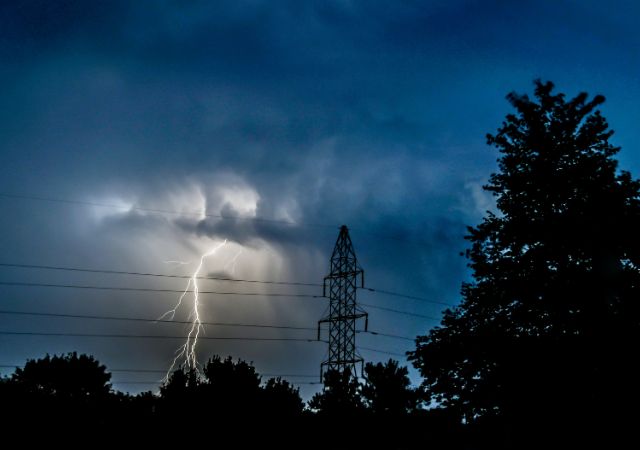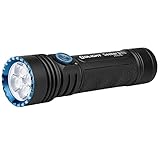Power outages can happen at any time and can last for several hours, days, weeks or even months. They can be caused by severe weather conditions, equipment failure, or other unforeseen circumstances. Whatever the cause, being prepared for a power outage can help you and your family stay safe and comfortable until power is restored.
Preparing for a power outage involves taking a few simple steps to ensure that you have the necessary supplies and equipment to weather the outage. One of the most important steps is to create an emergency kit that includes items such as flashlights, batteries, non-perishable food, and water. It’s also important to have a plan in place for how you will stay warm or cool, depending on the time of year, and how you will communicate with family and emergency services if needed.
Problems Caused by Power Outages
Power outages can cause a number of problems, ranging from minor inconveniences to serious safety hazards. Here are some of the most common issues that can arise during a power outage:
- Lack of lighting: Without electricity, it can be difficult to see in the dark. This can make it hard to navigate your home, find essential items, and perform basic tasks.
- No heating or cooling: If your home relies on electricity for heating or cooling, a power outage can quickly become uncomfortable, especially in extreme temperatures.
- Food spoilage: A power outage can cause food in your refrigerator and freezer to spoil, leading to wasted money and potential health risks.
- Water supply issues: If you rely on an electric pump to supply water to your home, a power outage can leave you without running water.
- Communication difficulties: During a power outage, you may not be able to use your phone or internet, making it difficult to communicate with loved ones or emergency services.
- Security risks: A power outage can make your home more vulnerable to theft or other security risks, especially if you don’t have a backup power source for your security system.
How to Prepare for a Power Outage
Because power outages can happen unexpectedly and can cause several problems you must always be prepared for the next outage. Here are some tips to help you prepare:
- Keep a stock of non-perishable food and water: During a power outage, you won’t be able to cook or use your fridge. It’s important to have a supply of non-perishable food and water that can last for several days. Make sure to store food in a cool, dry place.
- Have a backup power source: A backup power source, such as a generator or solar panels, can provide electricity during a power outage. Make sure to test your backup power source before a power outage occurs to ensure it’s working properly.
- Prepare an emergency kit: An emergency kit should include items such as flashlights, batteries, a first-aid kit, and a radio. Keep the kit in an easily accessible location.
- Protect your electronics: Power outages can cause electrical surges that can damage your electronics. Unplug your electronics and appliances to avoid damage.
- Stay informed: Stay informed about the status of the power outage by listening to the radio or checking your local news. If you have a smartphone, make sure to have a backup battery or charging device.
By following these tips, you can ensure that you and your family are prepared for a power outage and can stay safe and comfortable until power is restored.
Creating an Emergency Plan
An emergency plan will give you peace of mind because you have everything that you need for the outage. Here are some steps you can take to create an effective emergency plan:
- Identify potential hazards in your home and neighborhood, such as fallen trees or downed power lines.
- Create a communication plan with your family or roommates, including an out-of-town contact person who can act as a central point of contact.
- Make sure everyone knows how to safely turn off utilities like gas, electricity, and water in case of an emergency.
- Designate a safe meeting place in case you need to evacuate your home.
- Consider the needs of family members with special requirements, such as medical equipment or medication that requires refrigeration.
Remember to regularly review and update your emergency plan to ensure it remains relevant and effective. Also, make sure everyone in your household knows the plan and has access to important contact information and emergency supplies.
Assembling an Emergency Kit
One of the most important things you can do to prepare for a power outage is to assemble an emergency kit. This kit should contain all the essentials that you and your family will need to be self-sufficient for at least 72 hours during a power outage.
The following items should be included in your emergency kit:
- Water (at least one gallon per person per day)
- Non-perishable food items (such as canned goods, energy bars, and dried fruit)
- A manual can opener
- A first aid kit
- A flashlight with extra batteries
- A battery-powered or hand-crank radio
- A whistle
- A dust mask
- A medical face mask
- Moist towelettes, garbage bags, and plastic ties for personal sanitation
- A wrench or pliers to turn off utilities
- A local map
- Copies of important documents such as identification, insurance policies, and birth certificates
- Cash and coins
Remember to keep your emergency kit in a designated location that is easily accessible to all family members. It is also a good idea to check the kit regularly to ensure that all items are in good working order and have not expired.
Protecting Your Home and Property
Power outages can leave your home vulnerable to theft, damage, and other risks. Here are some tips to protect your property during a power outage:
- Install a backup generator to power essential appliances and systems during an outage. *Make sure to follow safety guidelines and have it installed by a professional.
- Unplug electronic devices and appliances to protect them from power surges when the power comes back on.
- Keep your home well-lit with battery-powered or solar lights to deter potential intruders.
- Secure all doors and windows with sturdy locks or shutters.
- Trim trees and remove dead branches that could fall on your home or power lines during a storm.
- Consider investing in a sump pump to prevent flooding in your basement during a power outage.
Conserving Resources
During a power outage, you should focus on conserving resources so that they can last as long as possible. Here are some tips for conserving energy:
- Turn off flashlights and battery powered electronics when they are not in use.
- Use battery-powered candles or battery-powered lights instead of electric lights.
- Keep your refrigerator and freezer closed as much as possible to maintain the cold temperature.
- Use non-perishable food which does not require cooking
Here are some additional tips for conserving water during a power outage:
- Use water sparingly and only for essential tasks like drinking, cooking, and personal hygiene.
- Use paper plates and utensils to avoid having to wash dishes.
- If you need to flush the toilet, pour a bucket of water into the bowl instead of using the flush.
- Collect rainwater in a clean container to use for non-potable tasks like flushing the toilet or watering plants.
Remember to only use resources when necessary and to be mindful of how much you are using.
Staying Safe During a Power Outage
A power outage can be a stressful and dangerous situation. Here are a few tips to help you stay safe:
- Stay away from fallen power lines and anything they are touching. Call your emergency numbers (e.g. 911) to report fallen power lines.
- If you use a generator, make sure it is placed outside and away from windows and doors to prevent carbon monoxide poisoning.
- Use flashlights or battery-operated lanterns instead of candles to avoid the risk of fire.
- Keep refrigerators and freezers closed to maintain the temperature and prevent food spoilage.
- If you need to use a portable generator, make sure it is properly grounded to prevent electrical shock.
- Avoid using outdoor grills or stoves indoors. These can produce carbon monoxide, which can be deadly.
Remember that power outages can last for several hours or even days. Keep a supply of non-perishable food, water, and medication on hand, and make sure you have a way to communicate with others in case of an emergency.
What to Do After a Power Outage
After a power outage, focus on ensuring your safety and minimizing damage to your property. Here are some things you should do:
- Check your home for any damage that may have occurred during the outage. Look for any fallen trees, broken windows, or other hazards that may pose a danger to you or your family.
- If you smell gas or suspect a gas leak, leave your home immediately and call the gas company or emergency services.
- Check your food supply for spoilage. If the power has been out for more than four hours, discard any perishable foods such as meat, dairy products, and leftovers that have been kept above 40°F for more than two hours.
- Reset your clocks and appliances that may have been affected by the outage.
- Report the outage to your utility company if you have not already done so. This will help them to identify the cause of the outage and restore power more quickly.
- Be patient. Power outages can be frustrating, but it may take some time for power to be restored to your area. Avoid calling the utility company unless it is an emergency, as they may be overwhelmed with calls.
Whether you live in an area that is prone to power outages or not, it’s always a good idea to be prepared. All it takes is one minor event to cause an electrical outage.
Further Reading
For more information about how to prepare for a power outage, please visit the following links:
Red Cross: Power Outage Safety
Ready.gov: Power Outages
National Grid: 12 Tips to Prepare for a Power Cut
California Public Utilities Commission: Preparing for a Power Outage
Get Prepared Canada: Power Outages – What to Do?
EcoFlow: How to Prepare for a Long-Term Power Outage
BC Hydro: Prepare Your Home for an Outage
FEMA: Prepare Yourself for a Power Outage
Massachusetts Emergency Management Agency: Power Outage Safety Tips
Canadian Red Cross: Power Outages: Before, During & After
Image: American Public Power Association via Unsplash













